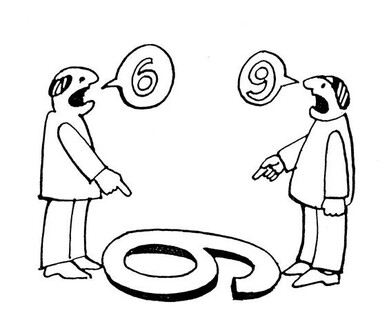Schedule
9h30-10h45: Martin Lipman, ‘On being special from one’s own perspective’
11-12h15: Lisa Vogt, ‘Upwards essence’
Lunch
14h15-15h45: Giovanni Merlo, ‘Against two-faced eternalism’ (*)
16h15-17h30: Martin Glazier, ‘Perspectival objects’
(*) This talk is an Eidos session and will take place in L208, Rue de Candolle 2
Abstracts (In alphabetical order, by author)
Perspectival objects - Martin Glazier (Geneva)
A perspectival object is one which is in a certain sense present from only some vantage points; familiar examples include constellations, landscapes, horizons, holograms, and rainbows. I will argue that there are many more such objects and indeed that they are ubiquitous in the following sense: a nonperspectival material object like a table or a tree shares its spatial location with infinitely many perspectival objects, which I call the object’s aspects. This argument raises the following question: of the nonperspectival object and its aspects, which is ontologically prior? On one view, aspectualism, the aspects are prior and the nonperspectival object is constructed from them; on a contrary view, anti-aspectualism, the nonperspectival object is prior and its aspects are constructed from it. I will develop precise formulations of these views by appeal to the framework of Fine’s “Towards a Theory of Part” (2010). I will assess the prospects of the theory of aspects for answering the perspectival variation argument against direct realism.
On being special from one’s own perspective’ - Martin Lipman (Leiden)
How does one appear to oneself? Can you genuinely be as you appear to be from a first perspective? This talk features the view that we appear to ourselves as singled out by the facts, and that we are as we appear to be. To explicate such a view, I apply a general metaphysical framework, according to which the world comprises what things are like from conflicting standpoints. I offer an account of the specialness that a subject has from its own perspective, briefly comparing it to the specialness of the present moment in time. The specialness is taken to consist in being such that what obtains relative to it, obtains. Some think that such an account faces a problem given the fact that things could be the same relative to different subjects. I offer an account that avoids this problem. I briefly compare the resulting view to alternative ways to explicate specialness. If time allows, I will reconstruct the notion of transcendental ego in terms of the framework and reject it. One of the overarching aims of the talk is to illustrate the metaphysical framework that I rely on.
Against two-faced eternalism - Giovanni Merlo (Geneva)
Many advocates of Metaphysical Eternalism – the view that there aren’t any tensed facts – embrace Psychological Temporalism – the view that there are tensed propositions. On the resulting combination – call it Two-faced Eternalism (TFE) – tensed propositions are something of a psychological ‘free lunch’: they play the role that propositions are traditionally supposed to play as objects of psychological attitudes but there aren’t any facts ‘out there’ making them true or false simpliciter. This paper argues that – much like Moorean-paradoxical claims of the form ‘p but I do not believe that p’ – TFE is not a rationally tenable position.
Upwards essence - Lisa Vogt (Freie Universität Berlin)
According to a widely held view in the debate on grounding, there cannot be any cases of “upwards essence”: viz., cases in which a grounding connection flows from the essence of the grounding truth, rather than the grounded truth. The aim of my talk is to defend the coherence of upwards essence against this mainstream doctrine. First, I argue that, far from being outright implausible, candidate cases of upwards essence indeed abound. And second, the three arguments against upwards essence that have been sketched in the literature – drawing on connections to ontological dependence, fundamentality, and factual parthood, respectively – do not provide us with a compelling case against upwards essence.
